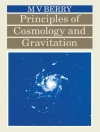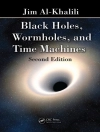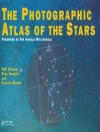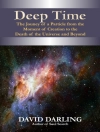We humans are collectively driven by a powerful – yet not fully explained – instinct to understand. We would like to see everything established, proven, laid bare. The more important an issue, the more we desire to see it clarified, stripped of all secrets, all shades of gray. What could be more important than to understand the Universe and ourselves as a part of it? To find a window onto our origin and our destiny? This book examines how far our modern cosmological theories – with their sometimes audacious models, such as inflation, cyclic histories, quantum creation, parallel universes – can take us towards answering these questions. Can such theories lead us to ultimate truths, leaving nothing unexplained? Last, but not least, Heller addresses the thorny problem of why and whether we should expect to find theories with all-encompassing explicative power.
Spis treści
MODELS.- Ultimate Explanations.- Problems with the Eternity of the Universe.- A Cyclical Universe.- A Looped Cosmos.- Continuous Creation Versus a Beginning.- Something Almost Out of Nothing.- The Quantum Creation of the Universe.- Ultimate Explanations.- ANTHROPIC PRINCIPLES AND OTHER UNIVERSES.- The Anthropic Principles.- Natural Selection in the Population of Universes.- The Anthropic Principles and Theories of Everything.- The Metaphysics of the Anthropic Principles.- Tegmark#x2019;s Embarrassment.- CREATION OF THE UNIVERSE.- The Drive to Understand.- The Metaphysics and Theology of Creation.- Creation and the Perpetuity of the Universe.- Controversies Over the Omnipotence of God.- Newton#x2019;s World.- Leibniz#x2019;s World.- The Initial Singularity and the Creation of the World.- Creation and Evolution.- Leibniz#x2019;S Question.
O autorze
Prof. Michael Heller
Birth date and place: March 12 1936, Tarnów, Poland.
1966 Ph.D. – Catholic University of Lublin, Thesis in relativistic cosmology.
1969 docent degree (assistant professorship), Catholic University of Lublin.
1985 extraordinary professorship (professor extraordinarius), Pontifical Academy of Theology, Faculty of Philosophy, Cracow.
1990 Ordinary Professorship (professor ordinarius), Pontifical Academy of Theology, Faculty of Philosophy, Cracow.
1996 Doctor honoris causa – Thechnological University A.G.H. in Cracow.
At present: professor at the Faculty of Philosophy of the Pontifical Academy of Theology, Cracow, Poland and the adjoined member of the Vatican Observatory (which is an astronomical observatory). Ordinary member of the Pontifical Academy of Sciences (Rome), elected in 1991.
Membership of: International Astronomical Union, International Society for General Relativity and Gravitation, European Physical Society, International Society for the Study of Time, Polskie Towarzystwo Fizyczne, Polskie Towarzystwo Astronomiczne and other societies
Fields of scientific research: Relativistic physics, in particular relativistic cosmology; geometric methods in relativistic physics, Philosophy and history of science, Science and theology
Research visits: Visiting professor at the Catholic University of Louvain, Belgium (1977, 1982), Oxford University, United Kingdom (1982), Leicester University, United Kingdom (1982), Ruhr University, Germany, The Catholic University of America, Washington D.C, USA (1986), University of Arizona (Vatican Research Group), Tucson, USA (1986), Licge University, Belgium (1996), Gregorian University, Rome (2004, 2006) and others
Winner of 2008 Templeton Prize












